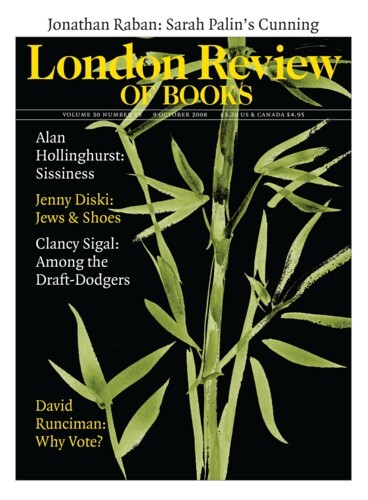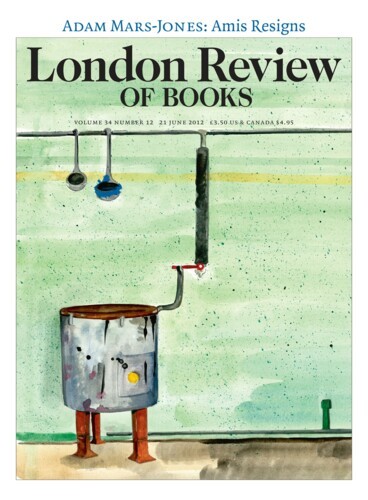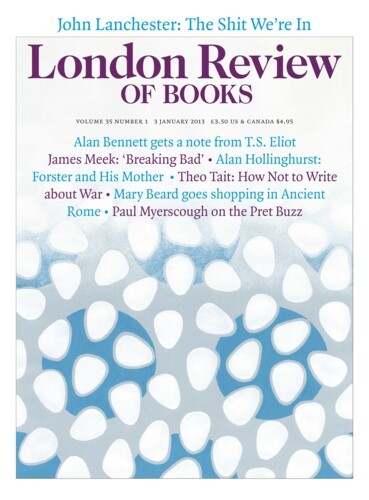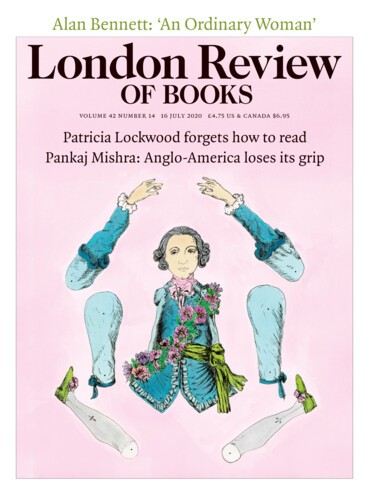Don’t Ask Henry: Sissiness
Alan Hollinghurst, 9 October 2008
The story of Belchamber’s publication is probably better known than the book itself, which, like its author, has suffered the ambiguous fate of becoming an accessory to the life of a more important writer. It is his friend Henry James who keeps Sturgis’s novel distantly in view, at the same time as casting a long shadow over it. James read it in proof, and wrote a characteristic sequence of letters to Sturgis about it, beginning with neat praise and mild demurrals, but quickly building up to such fundamental criticisms of the book that the demoralised author said he would withdraw it altogether; at which James protested and pleaded, successfully though not with any retraction of the criticisms he had made.




